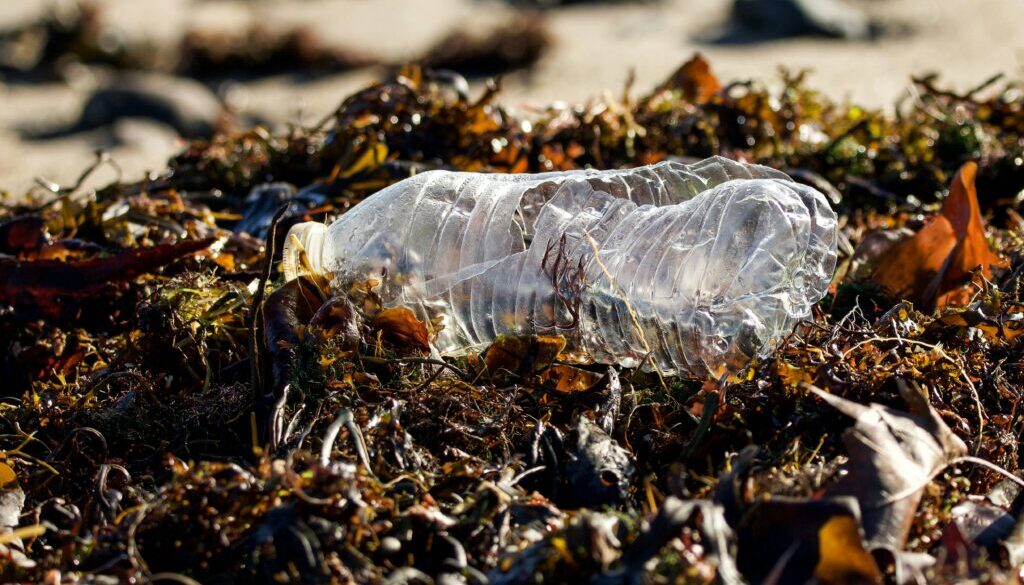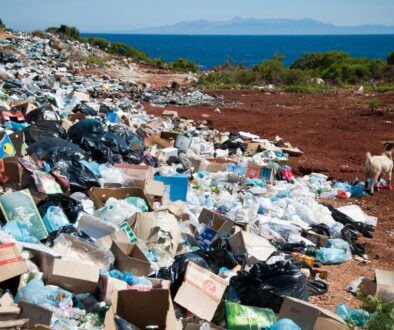Postcard from California: State sues ExxonMobil for plastics recycling fraud
 Last year, California Attorney General Rob Bonta filed a monumental lawsuit against five of the world’s largest petrochemical companies for an alleged “decades-long campaign of deception” about fossil fuels’ harm to the climate and the climate crisis’ devastating impacts on the state. The complaint built on similar fraud and liability suits against Big Oil by US cities, counties and states, and “rolled them all into a super-case” backed by the legal resources of the world’s fifth-largest economy.
Last year, California Attorney General Rob Bonta filed a monumental lawsuit against five of the world’s largest petrochemical companies for an alleged “decades-long campaign of deception” about fossil fuels’ harm to the climate and the climate crisis’ devastating impacts on the state. The complaint built on similar fraud and liability suits against Big Oil by US cities, counties and states, and “rolled them all into a super-case” backed by the legal resources of the world’s fifth-largest economy.
Now Bonta has filed another sweeping lawsuit against ExxonMobil, also named in last year’s suit, alleging that for more than 50 years it has deceived the public by fraudulently promoting recycling as the solution to the ever-growing global plastic waste crisis.
Plastics are made from polymers – synthetic chemical substances derived from oil and gas – and ExxonMobil is the world’s largest producer of polymers used to manufacture single-use plastics. The suit claims that ExxonMobil’s advertising, marketing and lobbying campaigns have peddled the false promise of plastics recycling, even while knowing recycling “will never be able to process more than a tiny fraction of the plastic waste it produces.”
Americans discarded more than 50 million tons of plastic waste in 2021, but despite the deceptive chasing-arrows symbol on most plastic items, only about 5% was recycled into new plastic goods. The vast majority of plastic waste is dumped in landfills, eventually fouling oceans and rivers, littering the landscape, endangering wildlife and building up in our bodies. Curbing the crisis will require slashing plastic production, but the plastics industry keeps making more. Worldwide production is projected to reach 590 million metric tons by 2050, an increase of 30%.
“For decades, ExxonMobil has been deceiving the public to convince us that plastic recycling could solve the plastic waste and pollution crisis when they clearly knew this wasn’t possible,” Bonta said in a news release. “ExxonMobil lied to further its record-breaking profits at the expense of our planet and possibly jeopardizing our health. Today’s lawsuit shows the fullest picture to date of ExxonMobil’s decades-long deception.”
The 147-page lawsuit, filed Sept. 23 in San Francisco County Superior Court, is the first against an oil company for its role in plastic pollution. Like the climate case, it seeks an as-yet unspecified amount of monetary damages from ExxonMobil, to be used to offset the state’s costs of cleaning up and preventing plastic waste.
“This is the single most consequential lawsuit filed against the plastics industry for its persistent and continued lying about plastics recycling,” Judith Enck, a former regional administrator of the US Environmental Protection Agency and president of the advocacy group Beyond Plastics, told the Los Angeles Times.
ExxonMobil blamed California officials for the crisis.
“For decades, California officials have known their recycling system isn’t effective,” a company spokesman said in a statement to The Guardian. “They failed to act, and now they seek to blame others. Instead of suing us, they could have worked with us to fix the problem and keep plastic out of landfills.”
The lawsuit draws on internal ExxonMobil and plastics industry documents uncovered through subpoenas issued in the climate case.
Bonta’s investigation found that as early as 1937, the Society of the Plastics Industry (SPI) – a trade group including Exxon and Mobil, which were then separate companies – began encouraging consumers “to live a throw-away lifestyle and normalized the consumption of unnecessary single-use plastics.”
At the SPI’s 1956 conference, a speaker advised companies to aim for their products to end up “in the garbage wagon.” In 1963, the same speaker lauded the industry for “filling the trash cans, the rubbish dumps and the incinerators with literally billions” of plastic bottles, jugs, containers and bags. “The happy day has arrived when nobody any longer considers the plastics package too good to throw away,” the speaker said.
In the 1970s, consumers grew increasingly concerned about plastic waste littering highways, parks and beaches. The plastics industry responded by promoting two “solutions:” landfills and incinerators.
SPI said plastics were ideal landfill material because “they don’t biodegrade,” they “just sit there.” Mobil said polystyrene foam dumped in landfills “compacts easily and will not contribute to air or water pollution.”
In 1973, an SPI report said: “Use of the energy generated during incineration of a plastic product is merely the ultimate in using petroleum in an effective manner for the public good.” A 1988 Mobil newspaper ad said incineration of polystyrene foam “produces virtually nothing but harmless carbon dioxide and water vapor.” In reality, so-called waste-to-energy incinerators produce little energy, and emit airborne toxins that threaten the health of nearby communities.
Even as public alarm over plastic waste grew, the suit says ExxonMobil ramped up its production of plastic polymers. It says the company continues to place responsibility on consumers, not manufacturers, and in ongoing negotiations toward a global plastics treaty, opposes limits on production.
ExxonMobil is now hyping so-called “advanced” or “chemical” recycling that breaks plastics down to raw molecules to make new products. But Bonta’s lawsuit says the process is economically unfeasible and that more than 90% of the material will be turned into fossil fuels containing hazardous toxins.
Both the climate and plastics lawsuits face a long and uncertain path. The US Supreme Court recently ruled that climate lawsuits such as California’s could move forward in state courts rather than federal courts, which should be more favorable venues for the states, but none are yet scheduled for trial.
“Lawsuits against the fossil fuel companies for deception about climate change have been kicking around since 2008,” Michael Gerrard, an environmental law professor at Columbia Law School, told the Los Angeles Times. “They have put pressure on the companies to be more honest, but so far none has gone to trial or settled, and several have been dismissed. I’m sure that Exxon will resist this (plastics) case as ferociously as it has the climate cases.”
Still, the lawsuit and the climate cases before it are important: They meticulously and legally document how Big Oil has made tens of trillions of dollars in profits through ignoring the damage its products wreak on the planet and its people, and the fraud and deception it uses to keep the profits flowing. Accountability and justice may be long in coming, but they must be pursued.
- Bill Walker has more than 40 years of experience as a journalist and environmental advocate. He lives in California’s San Joaquin Valley.
(Opinion columns published in The New Lede represent the views of the individual(s) authoring the columns and not necessarily the perspectives of TNL editors.)
(Featured photo by Brian Yurasits on Unsplash.)
 EWG
EWG


